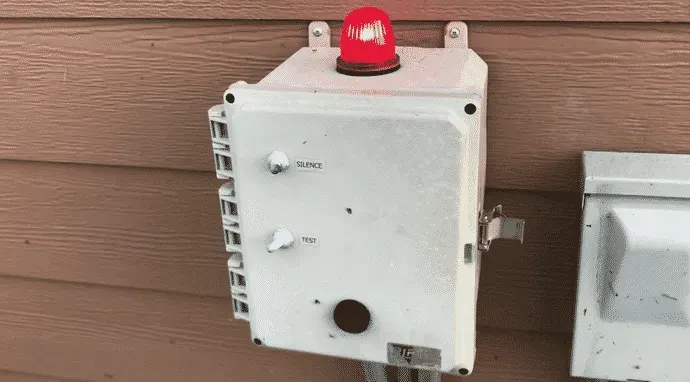
Septic Tank Alarm: Your Home's Silent Guardian

Have you ever wondered what that red light blinking in your basement means?
If you have a septic system, that little light could save you thousands of dollars. A septic tank alarm is your home's way of telling you something needs attention before it becomes a big problem.
We know dealing with septic issues can feel scary. But here's the good news: understanding your septic system alarm is easier than you think. This guide will help you become the hero of your own home by showing you exactly what to do when that alarm goes off.
What Is a Septic Tank Alarm?
A septic tank alarm is a simple warning system. It tells you when water levels in your septic tank get too high.
Think of it like a smoke detector for your septic system. Just like smoke detectors keep your family safe from fire, your septic system alarm keeps your home safe from sewage backup.
Most alarms have two parts:
A red light that blinks or stays on
A buzzer that makes noise
Why Does Your Septic System Alarm Go Off?
Your alarm septic tank system activates for several reasons. Here are the most common ones:
Heavy Rain or Snow
Too much water can overwhelm your septic system. When the ground gets soaked, your drain field can't absorb wastewater properly.
Power Outages
Your septic pump needs electricity to work. When the power goes out, water builds up in the tank.
Pump Problems
Sometimes the pump itself breaks down. This means water can't move from the tank to the drain field.
Too Much Water Use
Having guests over? Doing lots of laundry? Using too much water at once can trigger your septic tank alarm.
What to Do When Your Septic Tank Alarm Goes Off
Don't panic! Here's exactly what you should do:
Step 1: Check the Basics
First, look at your alarm panel. Most have a "silence" or "test" button.
Press the silence button to stop the noise. The red light will stay on, but at least you can think clearly.
Step 2: Reduce Water Usage Right Away
Stop using water for non-essential tasks:
Don't do laundry
Skip washing dishes
Take shorter showers
Don't run the dishwasher
Step 3: Wait and Watch
Give your system 6-8 hours to catch up. Sometimes that's all it needs.
If the alarm stays on after reducing water use, you need professional help.
Step 4: Call a Professional
Don't try to fix pump problems yourself. Septic system repairs require special tools and knowledge.
How to Prevent Septic System Alarm Problems
Prevention is always better than dealing with emergencies. Here's how to keep your septic system alarm quiet:
Watch Your Water Usage
Spread out water-heavy tasks throughout the week. Don't do all your laundry in one day.
Maintain Your System Regularly
Have your septic tank pumped every 3-5 years. This prevents buildup that can cause problems.
Be Careful What Goes Down the Drain
Never flush:
Cat litter
Diapers
Feminine products
Paper towels
Medications
Test Your Alarm Monthly
Push the test button on your alarm panel once a month. Make sure it's working properly.
Common Septic Tank Alarm Mistakes to Avoid
We see homeowners make these mistakes all the time:
Ignoring the Alarm
Never ignore your septic tank alarm. It's trying to protect your home and your wallet.
Using Too Much Water During an Alarm
When your alarm goes off, more water makes the problem worse. Always reduce usage first.
Trying DIY Repairs
Septic systems involve electricity and sewage. Leave repairs to trained professionals.
Forgetting Regular Maintenance
Regular septic maintenance prevents most alarm situations.
When to Call for Emergency Help
Some situations need immediate professional attention:
Sewage backing up into your home
Strong sewage smells outside
Wet spots in your yard that smell bad
Alarm that won't turn off after 24 hours
These signs mean your system needs help right away.
Understanding Your Septic System Better
Your septic system works hard every day. The tank holds wastewater while bacteria break down solid waste.
The pump sends liquid waste to your drain field. When this process gets interrupted, your alarm septic tank system lets you know.
Understanding this process helps you make better decisions about water usage and maintenance.
Final Thoughts on Septic Tank Alarms
Taking care of your septic system doesn't have to be complicated. Your septic tank alarm is actually your friend - it's trying to help you avoid expensive problems.
Remember these key points:
Act quickly when your alarm goes off
Reduce water usage immediately
Call professionals for repairs
Test your alarm monthly
With proper care and attention, your septic system will serve your family for many years. And your septic tank alarm will keep watching over your home, ready to alert you if anything needs attention.

© 2025 | All Rights Reserved | Privacy Policy